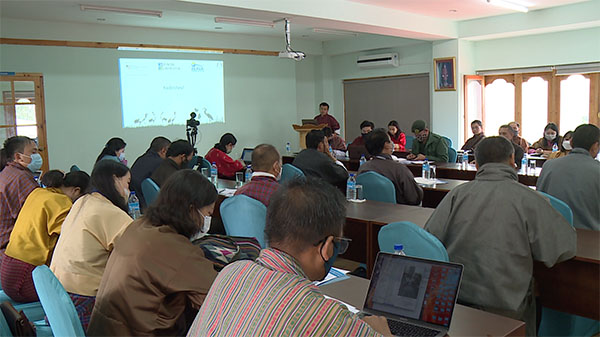 To conserve the endangered White-bellied Heron, the Royal Society for Protection of Nature (RSPN), is implementing a large-scale project titled Developing Ecosystem-based Solutions for Managing Biodiversity Landscapes in Bhutan. It is an environmental-based project that would provide social and economic benefits to conserve the critically endangered bird and help develop community livelihood at the same time.
To conserve the endangered White-bellied Heron, the Royal Society for Protection of Nature (RSPN), is implementing a large-scale project titled Developing Ecosystem-based Solutions for Managing Biodiversity Landscapes in Bhutan. It is an environmental-based project that would provide social and economic benefits to conserve the critically endangered bird and help develop community livelihood at the same time.
The RSPN will implement the project within five years. First, it will carry out the assessment and mapping of biodiversity in the designated area. Then, through its findings, such as the people’s socio-economic status and the environment, the RSPN will develop the activities.
“The overall project’s activities will be firstly protection and restoration of the critical habitats for the White-bellied Heron,” said Indra Acharya, the Chief of the Species Conservation Division at the RSPN.
He added that areas where the bird are found roosting, nesting and feeding will be protected, restored and maintained.
“The project will support the livelihood of the people living within these landscapes. We have an agriculture programme. We will support the plantation of horticulture species. We also have a tourism component which will be integrated with the ongoing tourism flagship programme,” he added.
The project will also develop policies and guidelines to reduce direct disturbances to the White-bellied Heron. In addition, components such as the development of community livelihood, human-wildlife conflict, water conservation, and climate-smart agriculture will be implemented through the project.
“One component is livelihood options whereby if you promote livelihood options of the community, their livelihood will be enhanced. They will be self-sufficient and when the livelihood of the communities is enhanced, their participation towards eco-system conservation becomes active,” said Tsheten Dorji, the Chief, of the Sustainable Livelihood Division at the RSPN.
The RSPN will carry out the project worth more than 4 M Euros in the six districts of Punakha, Wangdue Phodrang, Dagana, Trongsa, Tsirang, and Zhemgang.
Kelzang Choden
Edited by Sonam




